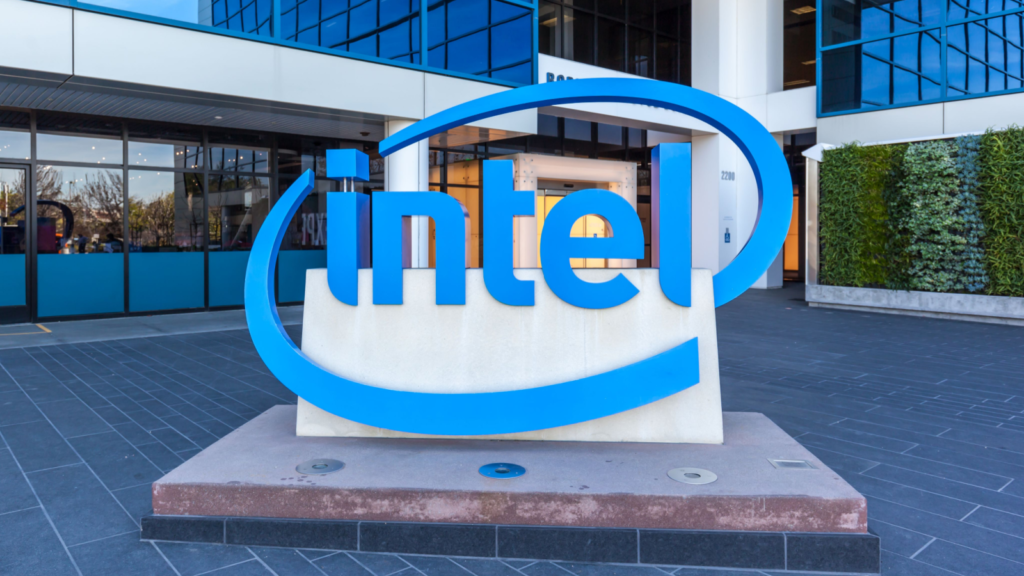
I didn’t expect much from Intel (NASDAQ:INTC) last quarter, and I was pleasantly surprised when it announced results late on July 27.
Intel said it earned 13 cents per share on $12.9 billion in revenue for the quarter ending July 1. Analysts expected a loss of 3 cents per share and revenue of just $12.1 billion. Revenue was down 15% and earnings were down 54% from a year ago. The company estimated third-quarter earnings at 20 cents per share.
Before earnings, traders didn’t know how the results would shake out. Bears saw AI draining revenue from the former “Chipzilla.” Most investment analysts were on the sidelines. Shares jumped $2 in the aftermarket, to about $36.40.
But that’s not the point, my friend.
The Foundry Business
Intel is really two businesses. The foundry business is in the process of being reborn, helped by subsidies under the Inflation Reduction Act meant to “re-home” supply chains from China. Intel will be losing billions of dollars on this business until its Ohio plants come up to speed. Once they do, it will impact the industry far beyond Intel.
Big bucks are pouring into Intel Foundry Services. Start with $20 billion for new foundries in Ohio but don’t stop there. There is also up to $36 billion going into new European foundries. There’s Intel’s entry into analog chips by buying Tower Semiconductor (NASDAQ:TSEM). There are a growing number of foundry partnerships. Intel is taking the whole semiconductor industry along for this ride.
If you believe in a new “AI SuperCycle” in companies like Nvidia (NASDAQ:NVDA) and Advanced Micro Devices (NASDAQ:AMD), then you expect these investments to pay off in time. If you’re looking to see why the U.S. economy refuses to roll over despite constant interest rate hikes, investments like Intel’s are a big part of the reason.
Are there risks? You bet. Intel must perfect the EUV technology pioneered by Taiwan Semiconductor (NYSE:TSM) (known in the trade as TSMC) and powered by equipment from ASML (NASDAQ:ASML) in Europe. It must hire and train a huge new workforce, amidst faltering demographics and a stressed U.S. education system. Demand for these new products must hold up.
But I believe in America. I believe this will work.
The Software Business
While Intel was dithering over the last two decades, with marketing-based committees running the show instead of process engineers, hardware became software.
Nvidia and AMD don’t make chips. They create designs in software that fabricators like TSMC and, in time, Intel, turn into silicon.
The software side of Intel is second-rate. The cracks were papered over in the last decade by the cloud, which needed the cheapest central processing unit (CPU) chips, in quantity, to build hyperscale data centers. Its fall has come about because clouds are being upgraded with the fastest possible graphics processing unit (GPU) chips. Intel has been left behind.
It will take years to fix this, and it may never be fixed. Intel may remain a laggard in GPUs and could keep losing share in CPUs to AMD. That’s why Intel is putting investment elsewhere, into foundries and analog chips.
The Bottom Line on INTC Stock
Our Louis Navellier is right. Intel is not the best play for AI.
The best plays are in the application space, in software that can provide productivity gains when the Internet’s full database capability is applied to it. Software-as-a-Service companies like ServiceNow (NYSE:NOW) and Microsoft (NASDAQ:MSFT) are going to take the lead.
But Intel may be the most essential play for AI. It may already be the second-largest chip foundry. In a few years it’s going to be the largest one. A lot of upcoming Nvidia and AMD chips will be made by Intel. They need to be made there, to fulfill their own promises.
This is why I’m keeping money in Intel stock. It’s not about this quarter’s earnings, as nice as they look, and barely about next year. It’s about the rest of the decade — and America’s place in the new economy.
As of this writing, Dana Blankenhorn held LONG positions in MSFT, NOW, NVDA, AMD, TSM and INTC. The opinions expressed in this article are those of the writer, subject to the InvestorPlace.com Publishing Guidelines.





